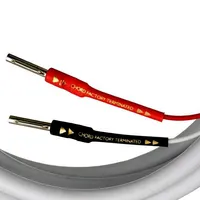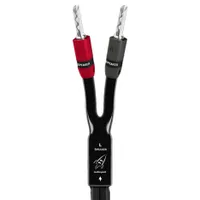What Hi-Fi? Verdict
The Reference XT40i is very much a QED cable: you’ll struggle to get your system sounding cleaner at this price
Pros
- +
Offers system great clarity
- +
Precision and accurate timing
- +
Great price
Cons
- -
Best help tie music together better
Why you can trust What Hi-Fi?

We reviewed the QED Reference XT40i in 2020, and while the market has inevitably produced fine alternatives in the years since then, everything we claimed about the quality of the QED cable remains true in 2025 and we have no issue in recommending it as one of the best speaker cables around today. You can check out our also consider section below which offers great alternatives at similar prices, and our original review of the QED Reference XT40i is presented unaltered below.
If there’s one thing hi-fi enthusiasts understand more than normal civilians, it is the value of good cables. Whether it’s speaker wires or the interconnects between your source and stereo amplifier, the difference between a quality pair and those bundled in free of charge at the dealership is chalk and cheese.
Take the QED Reference XT40i speaker cables – for only £11 per metre, they will audibly unlock otherwise unrealised potential in anything from a micro-system right up to the high end. They may also limit the latter quite a lot, but you get the point – if you’ve spent any kind of money on your system, you’ll hear the difference these QEDs make compared with cheap speaker wire.
Any long-term readers are likely to have already come across these cables’ predecessors, with the Reference XT40 having received a What Hi-Fi? Award in 2014. But QED has done more than add an ‘i’ to the name and hit republish.
Build
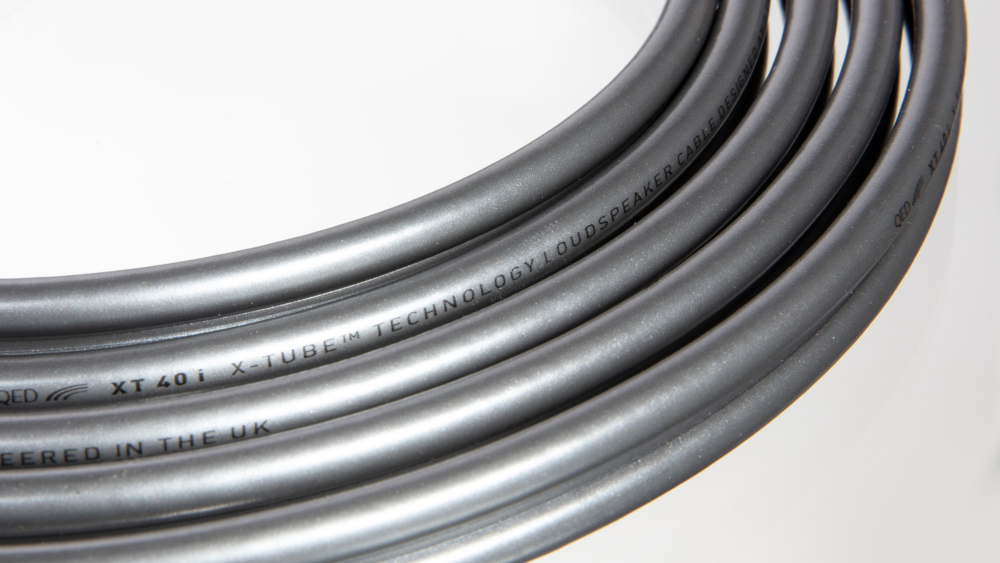
The nearly 50-year-old British company is introducing its brand new Air Gap dielectric to these 99.999% oxygen-free copper cables, a technology that increases the separation of conductors inside the cable and thus the amount of air between them.
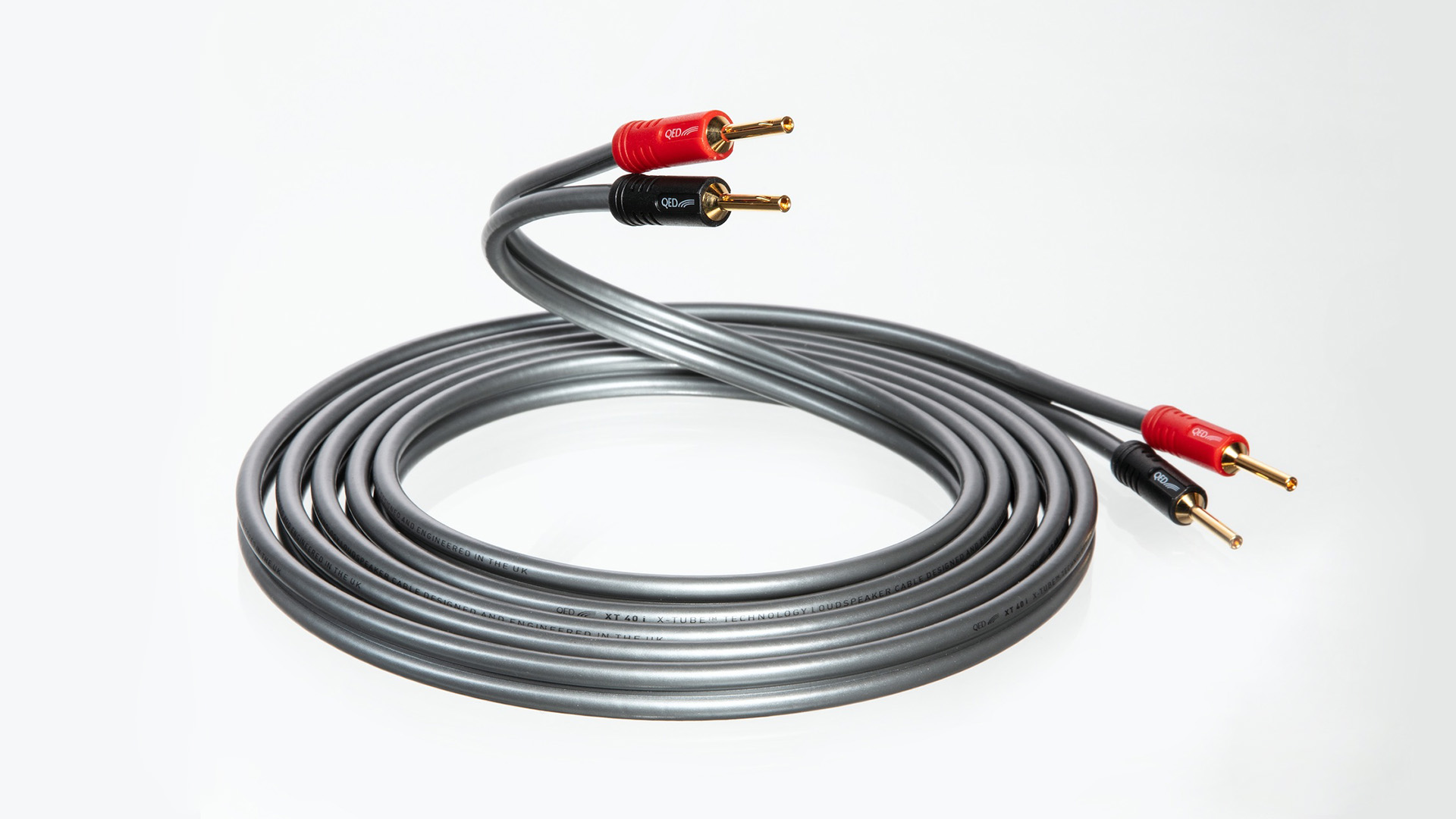
99.999% Oxygen-free copper
Low-Loss Air Gap Dielectric
X-Tube Technology
In turn, this halves the dissipation and capacitance characteristics inside the cable and, according to QED, improves the timing and rhythmic accuracy heard through your system, all while retaining the cross-sectional area ideal for long cable runs.
The Reference XT40i also retains QED’s X-Tube formation, where cable conductors are gathered in a tube-like shape around a hollow insulating rod to equalise current densities, delivering low inductance and presenting a consistent and even load to the amp.
Compatibility
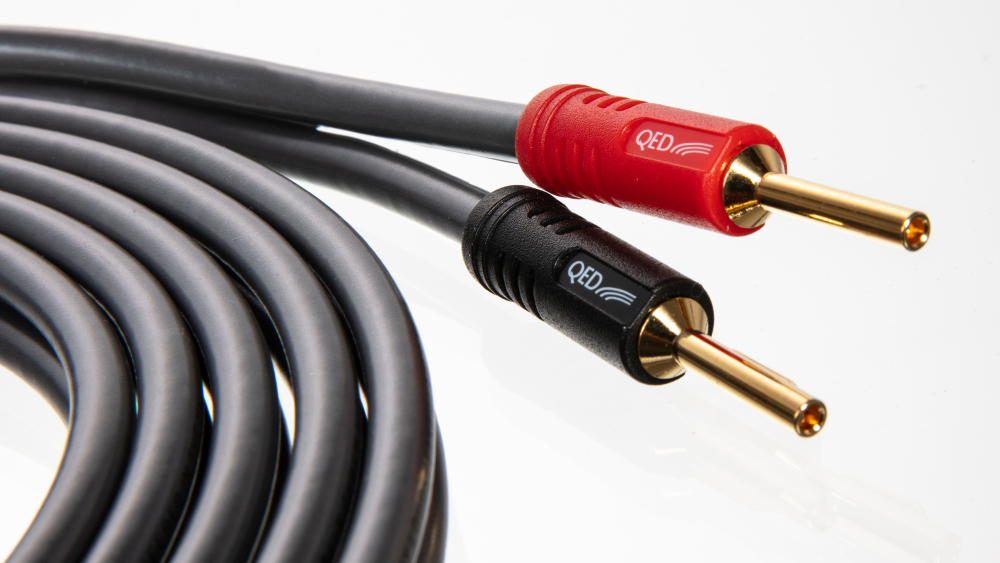
QED is even offering pre-terminated lengths of 2m, 3m and 5m Reference XT40i cables for £110, £130 and £170 respectively, which feels like a good deal considering usual market rate for the service.
The latest hi-fi, home cinema and tech news, reviews, buying advice and deals, direct to your inbox.
It feels an even better deal once you’ve heard what the Reference XT40i can do for an entry-level or mid-range system. Even plugged into our reference kit, it is apparent that QED hasn’t abandoned its reputation for helping produce a clean and insightful presentation.
Sound
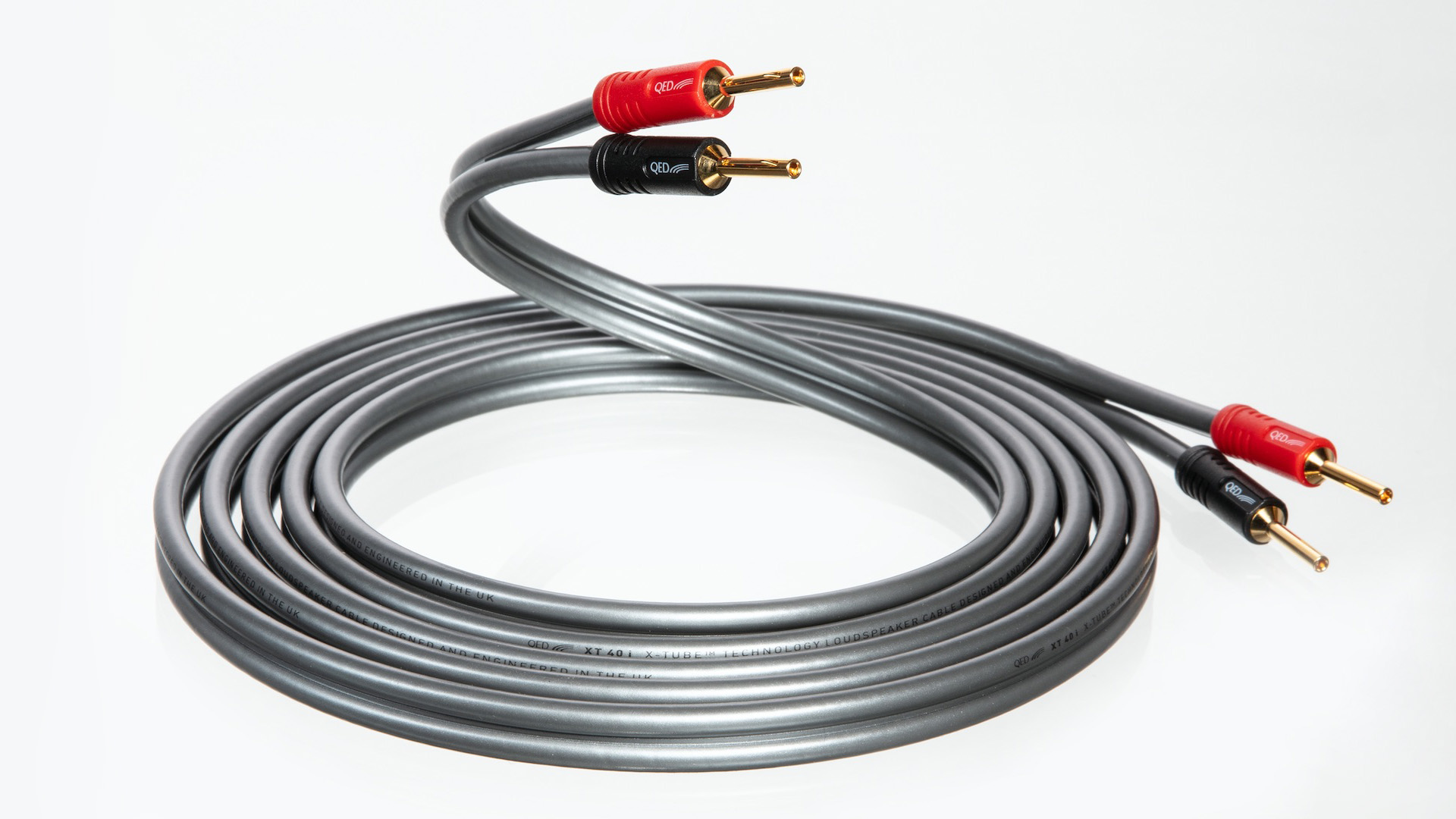
For anyone whose hi-fi is built upon clarity and analysis, these cables could be just the ticket. At times it is as if our system is begging for granular synthesizer pieces, something into which it can sink its teeth and taste each bold square and sawtooth wave as it passes over its palate.
Or if not, then the creeping of a bow across the strings of a cello, or the excess air as it breezes through the mouthpiece of a tenor sax.
QED simply excels in helping hi-fi equipment describe the shape of an instrument, the room it is in and how its sound has been recorded, and the Reference XT40i in no way bucks that trend.
It speaks about an improved sense of timing as well, and there is a definite eye for accuracy alongside attention to detail about the way our system performs with these cables plugged in. Nothing is allowed to slip, with notes and percussion hit with precision and intention. It isn’t as though previous efforts have been altogether imprecise, but there is an unerring confidence about the way our speakers play here.
In these regards, QED cannot really be beaten for the money. Its fiercest rival around this price is the Audioquest Rocket 11, which was again named our Accessories Product of the Year in 2019. It is marginally more expensive, at £12.50 per metre, but even when using that, our system is reluctant to divulge quite as much information.
But it does offer us more of a musical whole. It is a lot to do with dynamic expression, those leading notes that turn accurate timing into a traceable rhythm, and which help portray a more lyrical, human bent to the music. It’s also a little to do with organisation, and how each instrument is tethered to and interacts with one another – no doubt also aided by a little less space to play in.
The trade-off is that lack of comparative clarity, and that’s the compromise we’d more willingly make. Equally, others will prefer to go the other way, and we can see exactly why. You’d have to spend £18 per metre on Chord Company’s Rumour X to mix the two.
Verdict
If you’re looking to upgrade your system by investing in speaker cables this side of £15 per metre, you should hear what difference each of these can make to your gear. It could be that the QED Reference XT40i is a clear winner in more ways than one.
SCORES
- Sound 5
- Compatibility 4
- Build 5
Also consider
Chord Company C-Screen
If you want a cheaper option than the QED that still elicits a full-bodied, warm and expressive sound from your system, Chord Company's C-Screen cable is an appealing alternative and is still going strong after many years on the market.
AudioQuest Rocket 11
With a flexible build and boasting superb compatibility, the AudioQuest Rocket 11 is a slightly more costly alternative to the QED. That price increase is justified, however, with our system sounding clear, precise and fluid. They drop themselves out of the way just enough to let your system's performance excel as it should.
MORE:
These are the best speaker cables 2025
Read our Chord Company Rumour X review
Read our QED XT40 review
What Hi-Fi?, founded in 1976, is the world's leading independent guide to buying and owning hi-fi and home entertainment products. Our comprehensive tests help you buy the very best for your money, with our advice sections giving you step-by-step information on how to get even more from your music and movies. Everything is tested by our dedicated team of in-house reviewers in our custom-built test rooms in London, Reading and Bath. Our coveted five-star rating and Awards are recognised all over the world as the ultimate seal of approval, so you can buy with absolute confidence.
